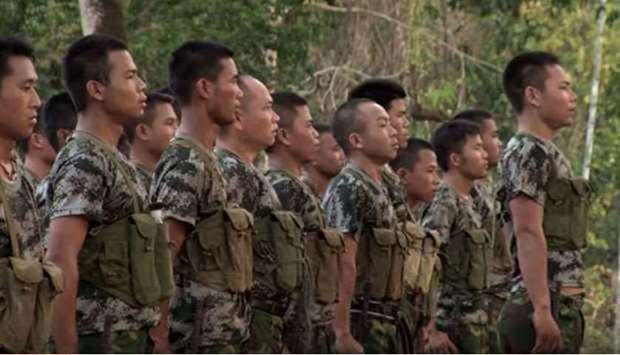A prominent ethnic rebel group in Myanmar suspended one of its key leaders this week, a spokesman said Saturday, as it investigates an alleged massacre of civilians on its territory.
Myanmar has been in turmoil since a February coup ousted Aung San Suu Kyi's elected government, sparking huge protests among civilians and renewing clashes between the military and ethnic rebel armies in its border regions.The Karen National Union (KNU) -- one of Myanmar's largest rebel groups in its east which has tussled with the military for decades -- have been locked in renewed conflict with the army since the coup.
In May, state-run media accused fighters from one of the group's armed wings, the Karen National Defence Organisation (KNDO), of a May 31 massacre of 25 construction workers -- an allegation KNU has said it will investigate.
Spokesman Padoh Saw Taw Nee confirmed Saturday that KNDO's head General Ner Dah Bo Mya and his subordinate Lieutenant Saw Ba Wah have been "suspended temporarily".
"According to the Geneva Conventions, even if they are our enemies, we just arrest them, you cannot kill like that," he said.
"We stand firmly on our commitment to the Geneva Conventions and the international community, and we have to deal with this carefully."
The decision -- made on Monday by KNU leaders -- will likely sow discord within the rebel group, whose political divisions over the handling of the junta have spilled out in recent months to the public.
But Padoh Saw Taw Nee defended the suspension as "part of our procedures".
General Ner Dah Bo Mya could not be reached for comment.
Myanmar's border regions are a patchwork of territories and alliances held by more than two dozen rebel groups, most of whom have fought with the military for more autonomy and resources.
Since the coup the KNU has clashed sporadically with the Myanmar military along the Thai border.
In March its fighters seized a military post and the army retaliated with air raids, the first in more than 20 years in Karen state.
The group has also condemned the military for the power grab, and provided shelter to dissidents working to oust the State Administration Council -- as the junta has dubbed itself.
Nearly 890 people have been killed by the junta's security forces since February 1, according to a local monitoring group.

